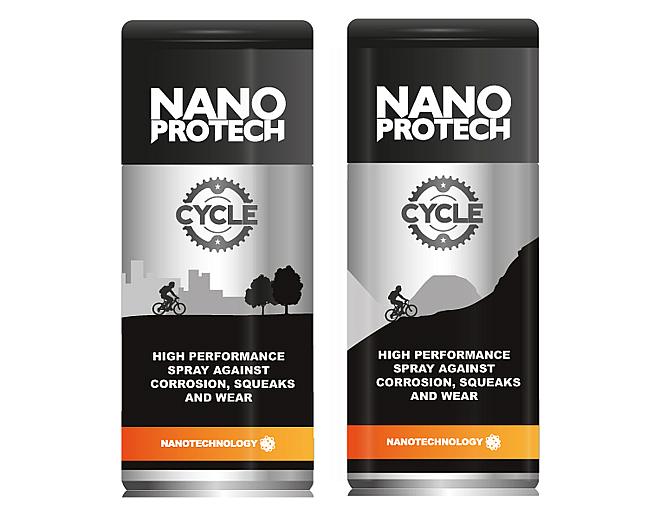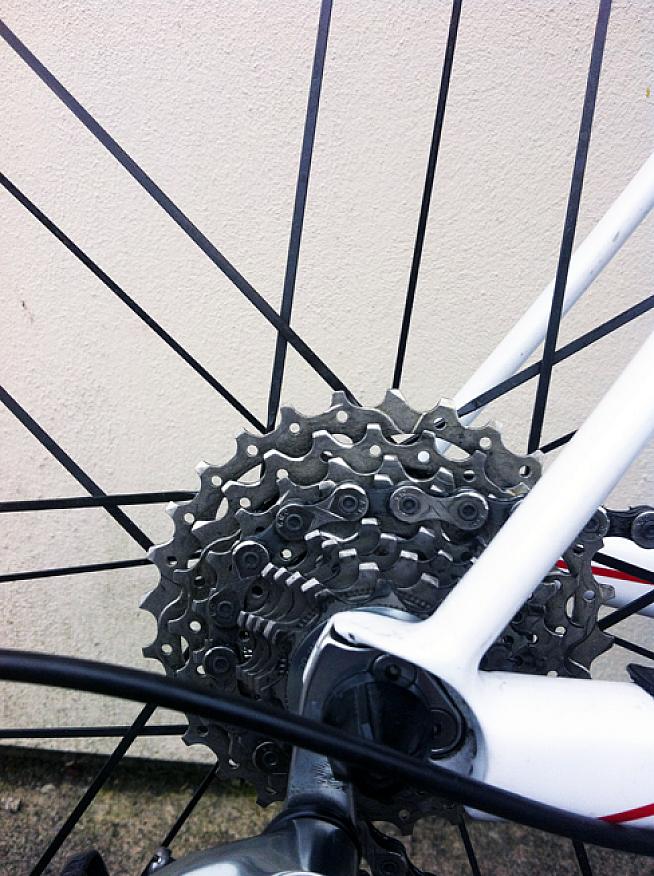One aspect of owning a white bike is the obsessive compulsion I have to keep it clean. When it's dirty it looks horrific but when it's clean it wouldn't look out of place lining up at the start of a pro tour stage.
I'm not always as fastidious about cleaning the drivetrain, however. To do it properly takes a long time and involves latex gloves, removing the chain, removing the jockey wheels and sometimes even the cassette - so if you see a guy riding around on a dazzling white bike but with a blackened chain, say hello as it will probably be me.
Enter stage right Nanoprotech, a Russian brand of lubricants now launching in the UK with a mission to keep our drivetrains as clean and well protected as my frame; and you don't need to be a member of the Katusha team to know that when winter comes to Moscow, it comes with a vengeance.

As cyclists we know that we lubricate the drivetrain to keep the chain running smoothly between the chainring and the sprockets - but there is an entire branch of science behind these actions. Tribology is the study of interaction between surfaces and dictates that, as with Chris Froome and Bradley Wiggins at the Team Sky Christmas party, some lubrication is required to ease the friction between abrasive elements. A single chain link has 16 surfaces tightly pinned together: multiply that by 114 (your average chain length - every day is a school day!) and that makes 1,824 surfaces requiring attention.
Nanoprotech claim that their Cycle Spray forms a long-lasting protective and lubricating film over your chain while displacing water and moisture. It also claims to prevent freezing of moving parts and mechanisms at -45°C but I am not prepared to test that claim. As luck would have it my drivetrain was in need of some attention, so over the weekend I took the opportunity to see if Nanoprotech is the best thing from the Urals since Smirnoff Red Label.
A good degreasing is required before applying any lubricant, to ensure that you dont simply spray fresh lube onto dirt and grime thus compounding the abrasion on the components. After a degrease, and with a shiny looking cassette, I applied the Nanoprotech. The pressurised container has a handy directional cap on it to make sure that it goes, mostly, where you want it to go, and the consistency is slightly thinner than most lubes from a can - I'd liken it to a PTFE dry lube.

With the drivetrain lubed up, I took the bike out for a spin. Shifting through the gears felt smooth and the drivetrain ran quiet and free throughout the 30 miles of the test, despite the less than thorough job I did of cleaning the chain. After such a short test, in dry conditions, the Nanoprotech did a good job of keeping everything running and protected from the elements. When I got home the chain and cassette still looked fresh from the earlier clean.
At the moment I am in two minds as to the suitability of Nanoprotech for all seasons. It certainly feels like it is a lube best suited to dry conditions; it doesn't attract too much dirt or grime but I'd be wary of that light consistency in wet conditions. That said, the manufacturer's claims are impressive and the image of a Russian winter is hard to shake.
I'll continue to use Nanoprotech thoughout our "compact" version of winter here in the UK, and may be in a position to offer a more considered review in the spring.
Nanoprotech Bike Spray is available from www.nanoprotech.co.uk, priced £8.95.
0 Comments





